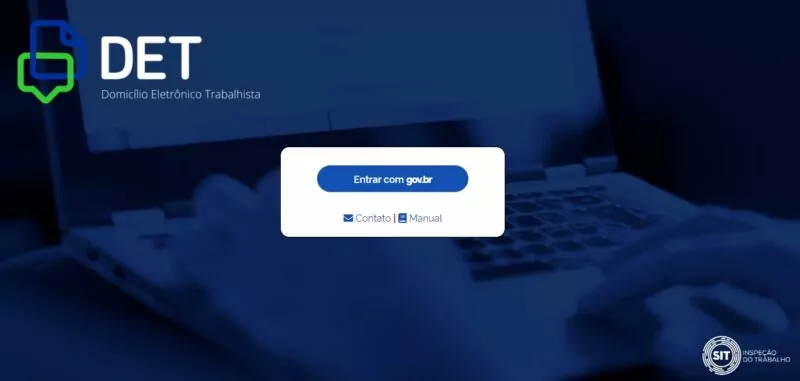The DET becomes compulsory from March 2024
The business landscape is constantly evolving, and the digital transformation has also reached the Ministry of Labor and Employment (MTE), bringing with it the Workplace Electronic Domicile (DET). This new system, regulated by Decrees 10.854/2021 e 11.905/2024and by MTE Ordinances 3.869/2023 and MTP 671/2021, promises to revolutionize communication between the Labour Inspectorate and employers.
What is DET?
The DET is an innovation developed by the MTE's Undersecretariat for Labor Inspection (SIT), with the aim of complying with article 628-A of the CLT, establishing electronic communication as an efficient and transparent form of interaction between the parties. It is an online tool that is compulsory for individuals and companies to use subject to MTE inspection actionsregardless of the presence of employees.
The Manual drawn up by SIT emphasizes that the DET's mission is to provide greater publicity and efficiency to the relationship between the Public Administration and the administered. The digitization of services aims to increase the security and transparency of information, while reducing process times and operating costs.
With the implementation of the DET, employers need to establish procedures for monitoring and accessing the electronic mailbox. Taking action in a timely and appropriate manner is crucial, as all official communications from the MTE, including inspection notices and infraction notices, will be carried out electronically. You can access it via the website: www.det.sit.trabalho.gov.br
[Read more about:] Wage transparency in 2024, stay tuned entrepreneur!
What are DET's main features?
DET has a number of essential functions, including:
- Notification to the employer of administrative acts, tax procedures, summonses, decisions in administrative litigation and notices in general.
- Possibility for the employer to submit documentation required during administrative procedures or inspections, presenting defenses and appeals in the corresponding processes.
- Setting deadlines for meeting requirements in administrative procedures or inspections.
- Issuing certificates, including those related to administrative infractions, FGTS debts and compliance with labor obligations.
- Offering tools for labor self-diagnosis and risk assessment in occupational health and safety.
- Access to labor legislation.
- Simplification of procedures for paying fines and labor obligations.
- Consultation of information on inspections in the Federal Labor Inspection System and the processing of labor administrative proceedings.
- Providing guidance, information and advice on compliance with labor legislation.
Additionally, the Electronic Labor Inspection Book (eLIT), replacing the printed format, is now accessed through the DET.
[Article]: All about INSS for entrepreneurs
Employers' responsibilities in the DET
With the implementation of the DET, it is up to employers:
- Maintaining access to the internet and properly configuring the computer used for electronic transmissions.
- Consult the DET to be aware of communications in your mailbox.
- Checking the transmission and ensuring that petitions and documents are received by the DET.
- Inform and keep updated at least one e-mail address to automatically receive alerts about communications in the DET mailbox.
- Meeting deadlines, as well as ensuring the content and integrity of the files sent to the DET.
[Article]: Digital work permit streamlines labor relations




